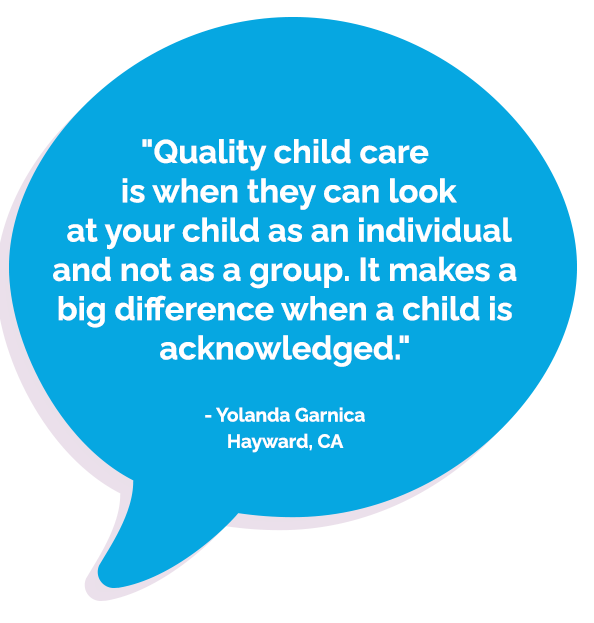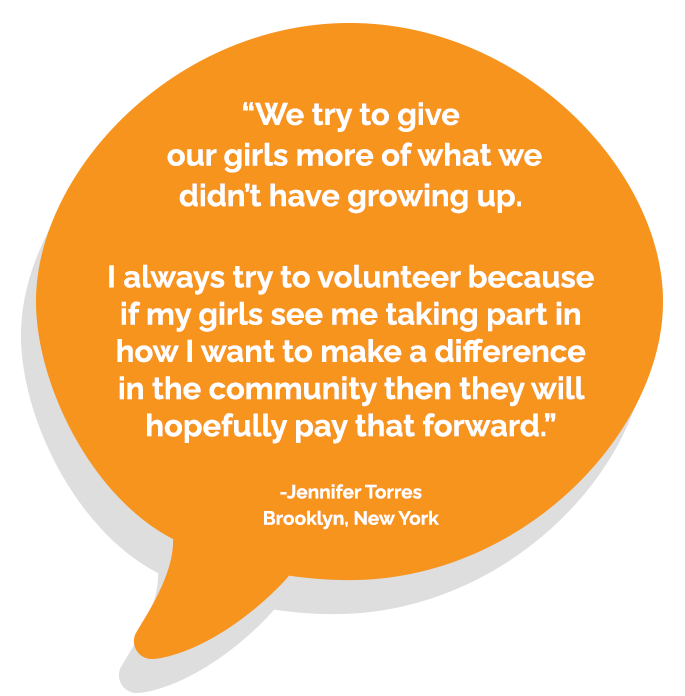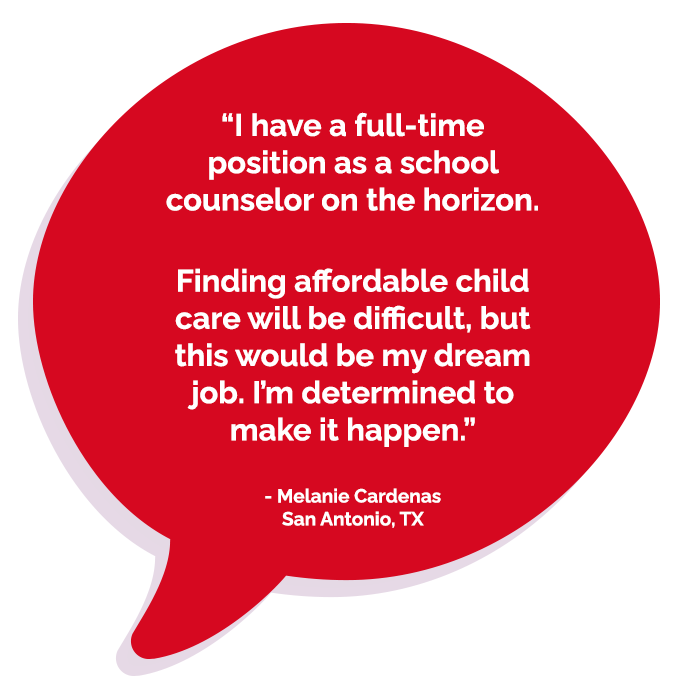Latino Family Voices:
Creating a Better Future for Our Children
The current political and economic climate feels uncertain, at best. The lack of predictability in the future is a throughline concern for Latino families. They are worried about their children’s future and the stability of the institutions and programs that are intended to support their prosperity.
However, families have a clear understanding of their strengths—and the solutions needed to thrive.
In our recent survey, Latino families have demonstrated strong support for education. They are calling for more resources to help their children develop bilingually and are clear that early care and education programs must incorporate cultural responsiveness.
In this survey of 1,300 Latino families with children aged prenatal to five, we found that parents consume news and media from a diverse spectrum of platforms and providers, making this group well informed of the issues their families face at the community, national, and global levels.
The Latino population in the U.S. grew 23% between 2010 and 2020, from 50.5 million to 62.1 million. Slightly more than half (51.1%) of the total U.S. population growth in that decade came from growth in the Latino population.[1]
This demographic represents the future of U.S. voters, taxpayers, and consumer power. Latinos are well aware of their current status and place within the country, yet they share deep concerns about the future. A vast majority are troubled by the belief that they will not be able to provide a good future for their children.
However, Latino families have not lost faith in our institutions to help solve the many complex issues we face in society. On the contrary, they want the government and policymakers to aggressively tackle challenges such as underachieving education systems, rising costs of living, climate change, and gun violence. Latino families have expressed strong support for expanding dual-language early education programs and for safety net programs like Medicaid or creating new ones like government-established savings accounts for children and a guaranteed basic income.
Despite the complexities of our times, Latino families want us all to create a better future for our children.
Latino Family Voices:
Creating a Better Future for Our Children
The current political and economic climate feels uncertain, at best. The lack of predictability in the future is a throughline concern for Latino families. They are worried about their children’s future and the stability of the institutions and programs that are intended to support their prosperity.
However, families have a clear understanding of their strengths—and the solutions needed to thrive.
In our recent survey, Latino families have demonstrated strong support for education. They are calling for more resources to help their children develop bilingually and are clear that early care and education programs must incorporate cultural responsiveness.
In this survey of 1,300 Latino families with children aged prenatal to five, we found that parents consume news and media from a diverse spectrum of platforms and providers, making this group well informed of the issues their families face at the community, national, and global levels.
The Latino population in the U.S. grew 23% between 2010 and 2020, from 50.5 million to 62.1 million. Slightly more than half (51.1%) of the total U.S. population growth in that decade came from growth in the Latino population.[1]
This demographic represents the future of U.S. voters, taxpayers, and consumer power. Latinos are well aware of their current status and place within the country, yet they share deep concerns about the future. A vast majority are troubled by the belief that they will not be able to provide a good future for their children.
However, Latino families have not lost faith in our institutions to help solve the many complex issues we face in society. On the contrary, they want the government and policymakers to aggressively tackle challenges such as underachieving education systems, rising costs of living, climate change, and gun violence. Latino families have expressed strong support for expanding dual-language early education programs and for safety net programs like Medicaid or creating new ones like government-established savings accounts for children and a guaranteed basic income.
Despite the complexities of our times, Latino families want us all to create a better future for our children.
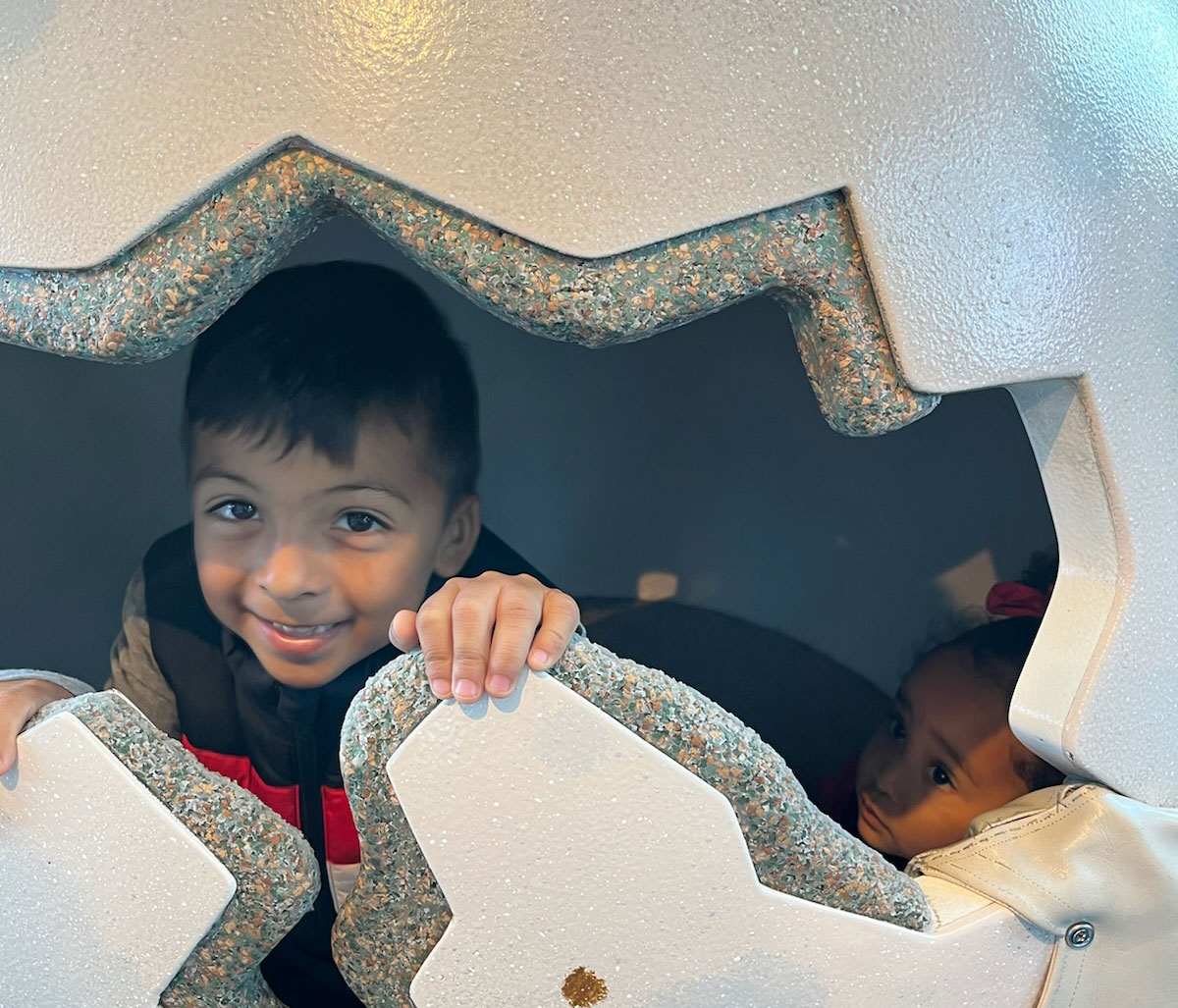
about keeping up with basic expenses
Of Latino families are concerned
60%
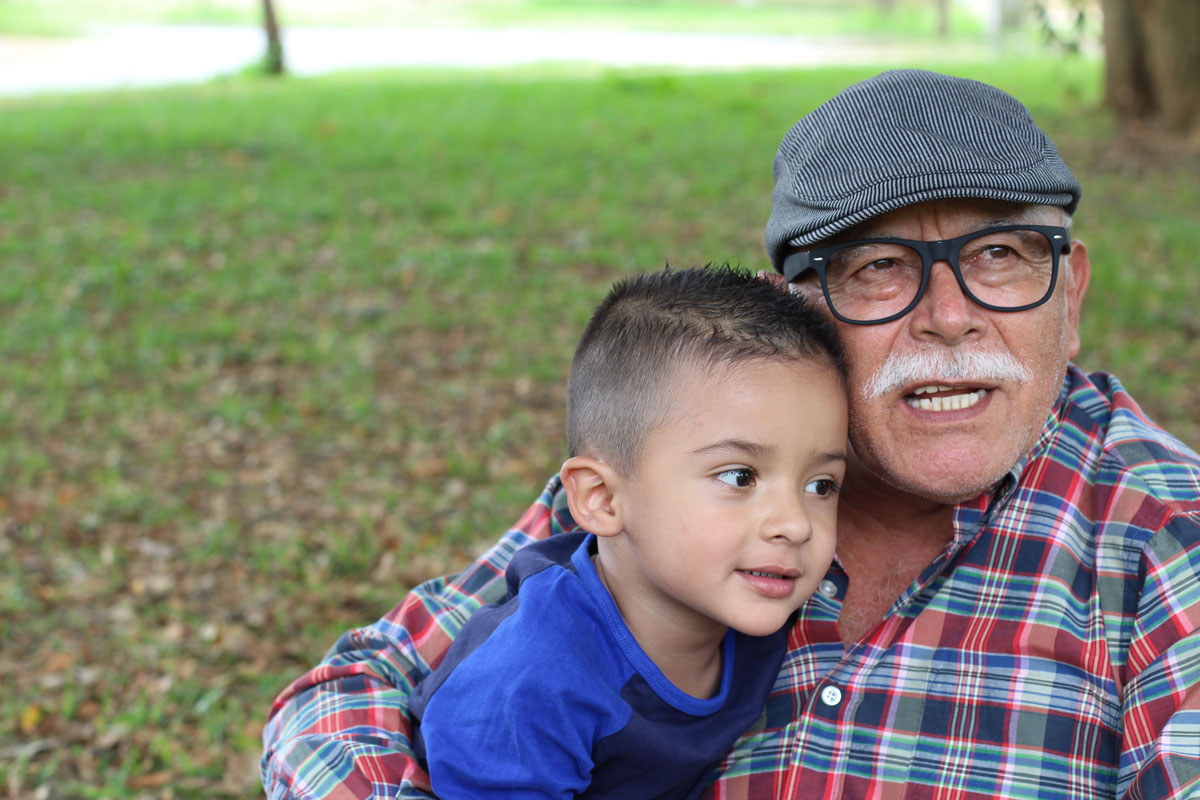
expanding paid medical leave
Of Latino families support
93%
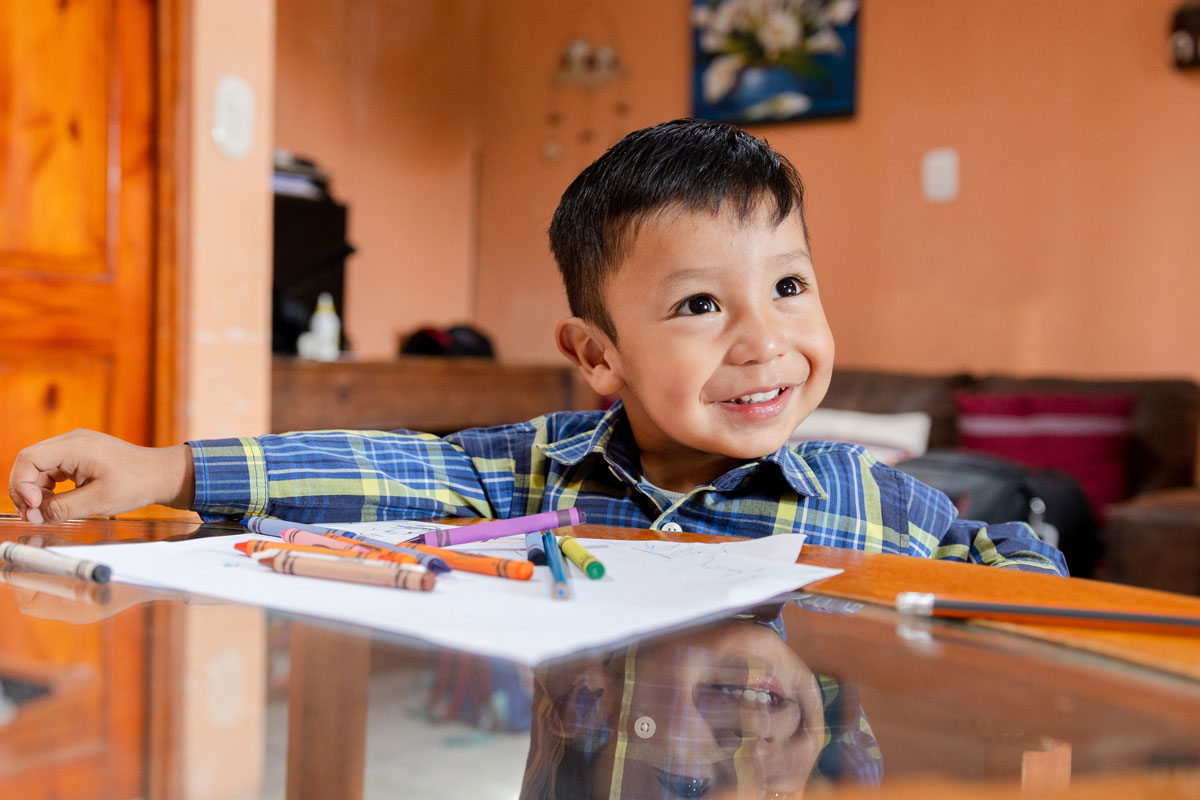
considering child care
Most important factor when
Affordability

about keeping up with basic expenses
Of Latino families are concerned
60%

expanding paid medical leave
Of Latino families support
93%

considering child care
Most important factor when
Affordability
Jump to:
Jump to:

Early Education
Latino families across the nation are calling for better educational opportunities. As the fastest-growing population in the United States, Latino families understand the importance of preparing their children for the twenty-first century.
Our survey found that early childhood education, racial history, and bilingualism were the top priorities and concerns for parents. As our global economy grows, multilingualism is a highly valuable job skill, as well as an important aspect of Latino heritage. A majority of families want their children to learn about race and racial history in school.
Early Childhood Development & Education
Studies have shown that participation in high-quality early childhood education programs has longitudinal, multigenerational effects. Children who attend these programs perform better academically,[2] stay in school longer,[3] have lower rates of depression,[4] exhibit better physical health, and earn higher salaries.[5]
For one in five families with children under five years old who reported having a child diagnosed with a learning disability, early detection and care is especially important.

Families with children under five years old who reported having a child diagnosed with a learning disability
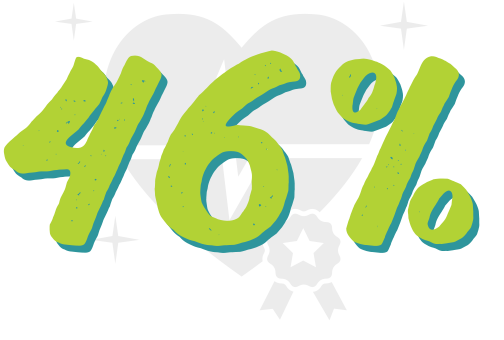
Of Latino families have not received any child care since their children’s birth
Of Latino families rely on a parent or family member for child care
Source of child care for Latino families
Top 5 issues Latino families want the government to address about early childhood development and education

Child safety

Access to quality child care

Cost of college tuition

Access to quality pre-k

Access to bilingual programs

Most critical skills for child development, according to Latino families

Reading comprehension

Social/emotional development

Vocabulary

Communication and expression

Motor skills

Problem solving

Cultural and historical education

Speaking more than one language
Latino family support for investment in early childhood development and education
Most important factors when considering child care:

Cost
Affordability
Quality
Good reputation and skilled caregivers
Hours of Operation
Accommodating parent schedules
Early Education
Latino families across the nation are calling for better educational opportunities. As the fastest-growing population in the United States, Latino families understand the importance of preparing their children for the twenty-first century.
Our survey found that early childhood education, racial history, and bilingualism were the top priorities and concerns for parents. As our global economy grows, multilingualism is a highly valuable job skill, as well as an important aspect of Latino heritage. A majority of families want their children to learn about race and racial history in school.
Early Childhood Development & Education
Studies have shown that participation in high-quality early childhood education programs has longitudinal, multigenerational effects. Children who attend these programs perform better academically,[2] stay in school longer,[3] have lower rates of depression,[4] exhibit better physical health, and earn higher salaries.[5]
For one in five families with children under five years old who reported having a child diagnosed with a learning disability, early detection and care is especially important.

Families with children under five years old who reported having a child diagnosed with a learning disability

Of Latino families have not received any child care since their children’s birth

Of Latino families rely on a parent or family member for child care
Source of child care for Latino families
Top 5 issues Latino families want the government to address about early childhood development and education

Child safety

Access to quality child care

Cost of college tuition

Access to quality pre-k

Access to bilingual programs

Most critical skills for child development, according to Latino families

Reading comprehension

Social/emotional development

Vocabulary

Communication and expression

Motor skills

Problem solving

Cultural and historical education

Speaking more than one language
Latino family support for investment in early childhood development and education
Most important factors when considering child care:

Cost
Affordability
Quality
Good reputation and skilled caregivers
Hours of Operation
Accommodating parent schedulesLanguage, Culture & Race
More than three-quarters of the total English learner population in the U.S.—5.1 million students—are Latino, and a similar proportion speak Spanish at home.[7] Our survey found that 85% of families value and nurture Spanish language learning at home.
Nine in ten survey respondents agree that early care and education programs should recognize and value diverse cultures and home languages other than English.
How Latino families support their child’s Spanish language development
Latino children enrolled in bilingual, language immersion, or dual-language programs
Latino families who would enroll their child in a bilingual program if it were available
Research has shown that access to quality bilingual programs early in life is essential. By 8th grade, bilingual learners have been shown to outperform monolingual peers in reading, math, and attendance.[8] However, currently, only 27% of families report having their children enrolled in a bilingual program in the earliest years.
The pandemic has taken a major toll on Latino student performance, widening the academic achievement gap. Between 2019 and 2021, UnidosUS found that Latino students in 3rd through 8th grade saw greater declines than their non-Latino white peers on interim math (Latino scores fell by 13 points) and reading (fell by 9 points).[9]
Declining academic outcomes have not gone unnoticed by Latino families. Parents are paying special attention to the discourse around curriculum changes—such as the debate over discussing the history of racism in schools. A majority of Latino families support teaching about race and racism in public schools.
Children should learn about race and racism in public schools
Language, Culture & Race
More than three-quarters of the total English learner population in the U.S.—5.1 million students—are Latino, and a similar proportion speak Spanish at home.[7] Our survey found that 85% of families value and nurture Spanish language learning at home.
Nine in ten survey respondents agree that early care and education programs should recognize and value diverse cultures and home languages other than English.
How Latino families support their child’s Spanish language development
Latino children enrolled in bilingual, language immersion, or dual-language programs
Latino families who would enroll their child in a bilingual program if it were available
Research has shown that access to quality bilingual programs early in life is essential. By 8th grade, bilingual learners have been shown to outperform monolingual peers in reading, math, and attendance.[8] However, currently, only 27% of families report having their children enrolled in a bilingual program in the earliest years.
The pandemic has taken a major toll on Latino student performance, widening the academic achievement gap. Between 2019 and 2021, UnidosUS found that Latino students in 3rd through 8th grade saw greater declines than their non-Latino white peers on interim math (Latino scores fell by 13 points) and reading (fell by 9 points).[9]
Declining academic outcomes have not gone unnoticed by Latino families. Parents are paying special attention to the discourse around curriculum changes—such as the debate over discussing the history of racism in schools. A majority of Latino families support teaching about race and racism in public schools.
Children should learn about race and racism in public schools
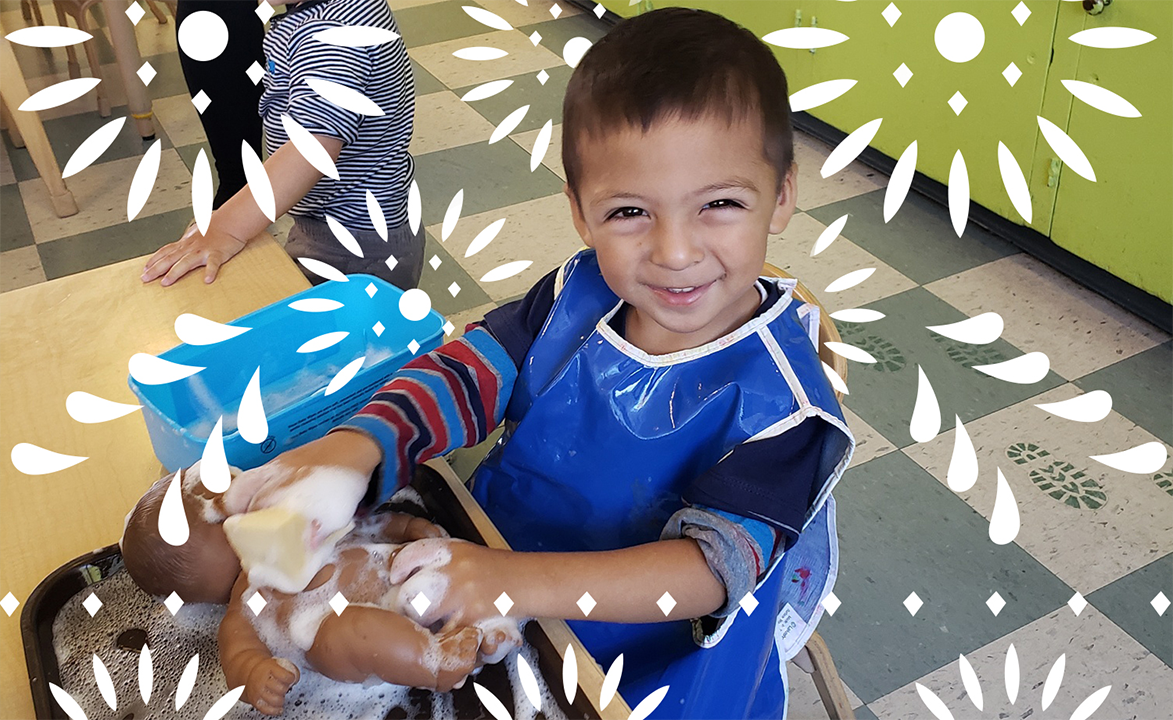
Mental Health
The past two years of COVID-19-related trauma, loss, and financial stress have created an enormous rise in mental health issues among Latino families. The American Psychology Association found that Latinos were the most likely to report dangerously high levels of stress compared with their white counterparts and other people of color.[10]
Stress is a major barrier to early learning and development. Adverse childhood experiences (ACEs), which include toxic stress in households, can negatively affect children’s brain development and other response systems. Research has found that high-stress environments at home and in the classroom impair memory retrieval[11] and attentiveness while increasing argumentativeness and impulsivity.[12]

Support Latino families need to help their children manage stress and anxiety
Support Latino parents need to manage their own stress and anxiety
Latino families that support more funding for infant mental health services

Mental Health
The past two years of COVID-19-related trauma, loss, and financial stress have created an enormous rise in mental health issues among Latino families. The American Psychology Association found that Latinos were the most likely to report dangerously high levels of stress compared with their white counterparts and other people of color.[10]
Stress is a major barrier to early learning and development. Adverse childhood experiences (ACEs), which include toxic stress in households, can negatively affect children’s brain development and other response systems. Research has found that high-stress environments at home and in the classroom impair memory retrieval[11] and attentiveness while increasing argumentativeness and impulsivity.[12]

Support Latino families need to help their children manage stress and anxiety
Support Latino parents need to manage their own stress and anxiety
Latino families that support more funding for infant mental health services
Security & Safety
Throughout our survey, Latino parents expressed worry about the uncertainty of both the financial and physical security of their children and themselves. Financial stability is difficult, with most families stating they are concerned that they cannot afford basic expenses because of the rising costs of living.
Also, families have raised concerns over physical security with global issues like climate change that affect droughts, fires, and other natural disasters, as well as localized problems like gun violence and racism, both of which many Latino families have experienced first-hand.
Additionally, Latino families are looking to the government to stabilize these security concerns in the future.
Financial Security
Latino families believe the leading issues they face are the rising costs of living and inflation. Sixty percent of the families surveyed are concerned that they will not be able to keep up with basic expenses in the coming years. They also understand the government’s role in providing potential solutions to the current financial crisis and look to government response as a possible solution.
A majority of Latino families believe that the top issues the government should address are related to the economy and cost of living.
Top 5 issues Latino families want the government to address

Economy 21%

Rising cost of living/inflation 20%

Improving wages and income 18%

Education 17%

Gun violence & mass shootings 15%
Younger parents (under 35)

Reducing housing prices 14%
(ranked in top 5)Expectant Families

Access to quality child care and early learning 16%
(ranked 3rd along with Education, Protecting Immigrant Rights, Discrimination/Racial Justice)Spanish home language-respondents

Addressing gun violence and mass shootings 29%
(ranked 2nd)Latino families concerned about keeping up with basic expenses like rent/mortgage or utilities
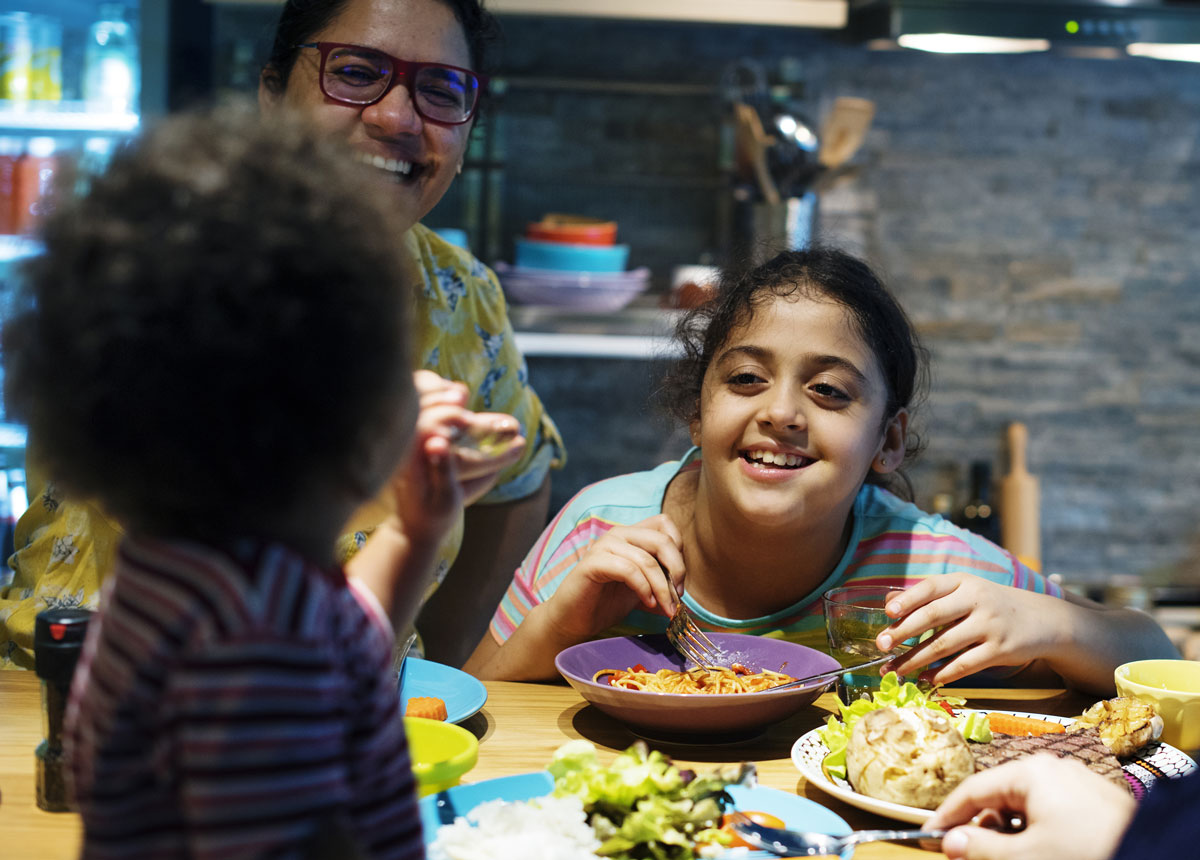
Challenges Latino families face receiving public benefits
Denied or terminated from SNAP
Denied or terminated from TANF
Physical Safety
Existential physical safety issues are front of mind for Latino families, specifically gun violence within their communities. The majority of families are concerned about gun violence, with 18% having first-hand experience with gun violence within a school or public setting.
The concern of physical safety related to firearms affects how Latino parents raise their children, with 62% extremely concerned that their child could be a victim of a mass shooting at some point in their life.
Moreover, Latino families believe that policymakers should take aggressive steps toward reducing the number of mass shootings and have better laws covering gun sales.
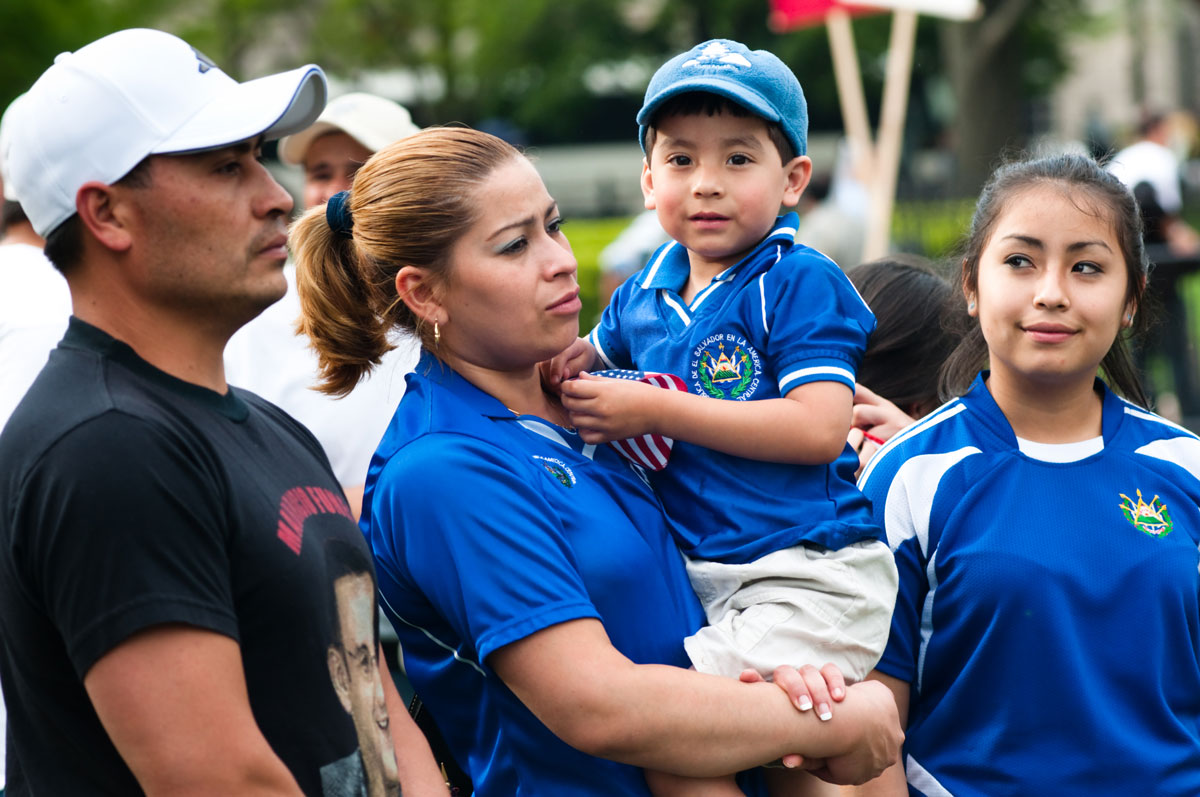
The majority of Latino families believe policymakers should take aggressive measures to reduce gun violence
Security & Safety
Throughout our survey, Latino parents expressed worry about the uncertainty of both the financial and physical security of their children and themselves. Financial stability is difficult, with most families stating they are concerned that they cannot afford basic expenses because of the rising costs of living.
Also, families have raised concerns over physical security with global issues like climate change that affect droughts, fires, and other natural disasters, as well as localized problems like gun violence and racism, both of which many Latino families have experienced first-hand.
Additionally, Latino families are looking to the government to stabilize these security concerns in the future.
Financial Security
Latino families believe the leading issues they face are the rising costs of living and inflation. Sixty percent of the families surveyed are concerned that they will not be able to keep up with basic expenses in the coming years. They also understand the government’s role in providing potential solutions to the current financial crisis and look to government response as a possible solution.
A majority of Latino families believe that the top issues the government should address are related to the economy and cost of living.
Top 5 issues Latino families want the government to address

Economy 21%

Rising cost of living/inflation 20%

Improving wages and income 18%

Education 17%

Gun violence & mass shootings 15%
Younger parents (under 35)

Reducing housing prices 14%
(ranked in top 5)Expectant Families

Access to quality child care and early learning 16%
(ranked 3rd along with Education, Protecting Immigrant Rights, Discrimination/Racial Justice)Spanish home language-respondents

Addressing gun violence and mass shootings 29%
(ranked 2nd)Latino families concerned about keeping up with basic expenses like rent/mortgage or utilities

Challenges Latino families face receiving public benefits
Denied or terminated from SNAP
Denied or terminated from TANF
Physical Safety
Existential physical safety issues are front of mind for Latino families, specifically gun violence within their communities. The majority of families are concerned about gun violence, with 18% having first-hand experience with gun violence within a school or public setting.
The concern of physical safety related to firearms affects how Latino parents raise their children, with 62% extremely concerned that their child could be a victim of a mass shooting at some point in their life.
Moreover, Latino families believe that policymakers should take aggressive steps toward reducing the number of mass shootings and have better laws covering gun sales.

The majority of Latino families believe policymakers should take aggressive measures to reduce gun violence

Opportunity
Although Latino families are deeply concerned about the American economy, they have clear opinions about what government and other social programs can help their families get a leg up. They are concerned about accessing more upward mobility opportunities to build generational wealth for their children’s futures.
Our survey heard a resounding call for wider federal safety nets and pathways to better career opportunities.
Federal Policies
Latino families responded with strong support for sick pay, parental leave, and expanded health coverage. The Center of Budget and Policy Priorities writes, “The United States is alone among wealthy countries in its lack of a national paid leave program.”
Latino families are less likely to be able to afford to take unpaid time off, which exacerbates the nation’s high rate of income inequality.
The benefits of paid leave have been well documented. Paid time off for maternity/paternity leave improves early childhood development, increases fathers’ involvement, and eases financial stress. Similarly, paid medical leave reduces financial insecurity and stress. Paid time off also helps businesses by improving retention and productivity and can boost labor force participation.[14]
Federal aid programs that Latino families support
In addition to short-term solutions such as health care and paid leave, Latino families are open to progressive, long-term solutions to building generational wealth for their families.
An overwhelming majority of respondents support federal saving accounts for children and guaranteed basic income (GBI) programs. GBI programs offer no-strings-attached payments to help fund basic expenses. Government-funded children's savings accounts are established at birth and are used later in life for retirement, college, to help purchase a first home, or to start a business.

Opportunity
Although Latino families are deeply concerned about the American economy, they have clear opinions about what government and other social programs can help their families get a leg up. They are concerned about accessing more upward mobility opportunities to build generational wealth for their children’s futures.
Our survey heard a resounding call for wider federal safety nets and pathways to better career opportunities.
Federal Policies
Latino families responded with strong support for sick pay, parental leave, and expanded health coverage. The Center of Budget and Policy Priorities writes, “The United States is alone among wealthy countries in its lack of a national paid leave program.”
Latino families are less likely to be able to afford to take unpaid time off, which exacerbates the nation’s high rate of income inequality.
The benefits of paid leave have been well documented. Paid time off for maternity/paternity leave improves early childhood development, increases fathers’ involvement, and eases financial stress. Similarly, paid medical leave reduces financial insecurity and stress. Paid time off also helps businesses by improving retention and productivity and can boost labor force participation.[14]
Federal aid programs that Latino families support
In addition to short-term solutions such as health care and paid leave, Latino families are open to progressive, long-term solutions to building generational wealth for their families.
An overwhelming majority of respondents support federal saving accounts for children and guaranteed basic income (GBI) programs. GBI programs offer no-strings-attached payments to help fund basic expenses. Government-funded children's savings accounts are established at birth and are used later in life for retirement, college, to help purchase a first home, or to start a business.
Long-term federal aid programs that Latino families support
Evidence has consistently demonstrated that GBI programs have positive outcomes for low- and middle-income households. A meta-analysis from Stanford University found that GBI programs lead to a measurable decrease in poverty, increased school enrollment and attendance, and improved physical and mental well-being.[15]
In 2019, there were 82 children’s savings account programs across the United States. A study examining programs’ effectiveness 10 years after accounts were established found that participating families had higher savings and higher expectations that their children would attend college. The study also found that families who were enrolled for seven years saved over four times more of their own money on average than families who were not enrolled.[16]
Upward Mobility
The 2023 National Latino Family Report heard a resounding call for more support for working families—but parents are not looking for handouts. Twenty percent of respondents requested more career counseling and coaching, and 25% supported more job skill development tools.
The time and space to pursue higher education is a key determining factor in upward mobility and higher-paying job opportunities. Worryingly, our study found that 10% of respondents were forced to postpone or quit their education or career-related expenses because of inflation and the rising costs of living.

of Latino parents postponed or quit their education because of the rising costs of living
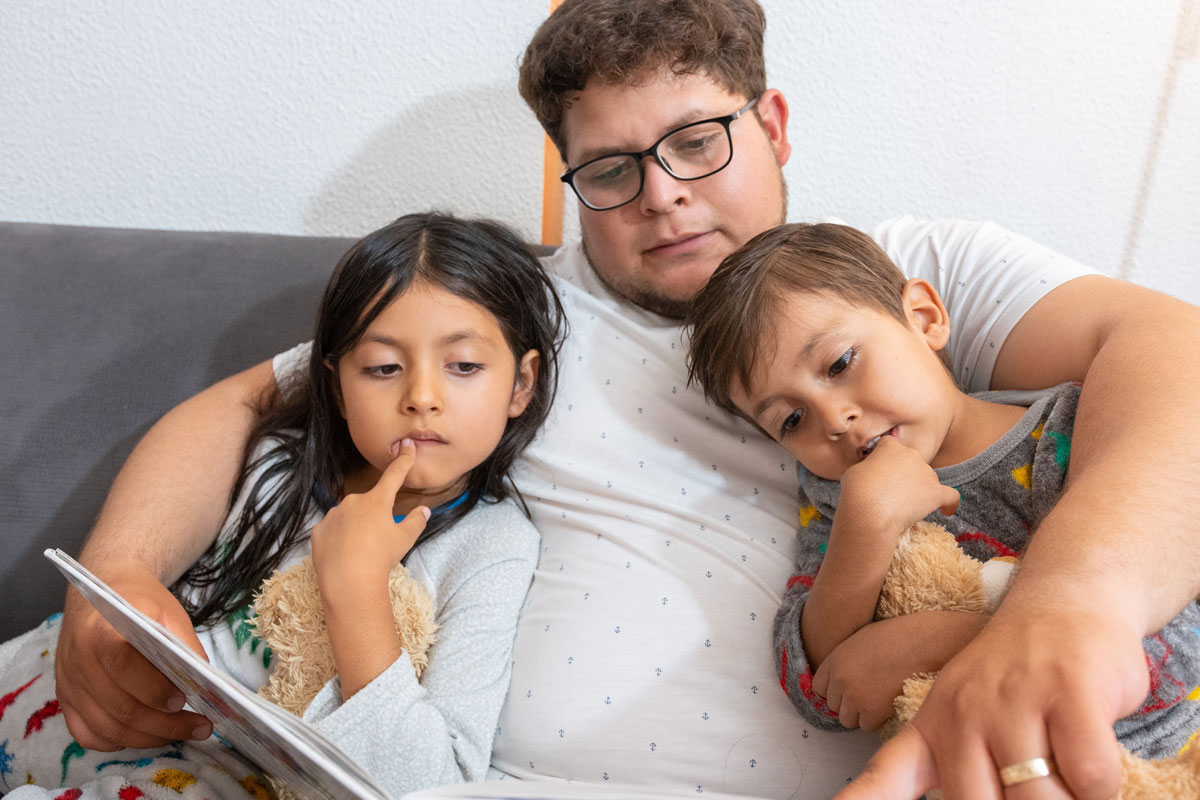
Solutions for Latino upward mobility

Goal-setting tools for education & job skills development 25% support

Career counseling or coaching 20% support
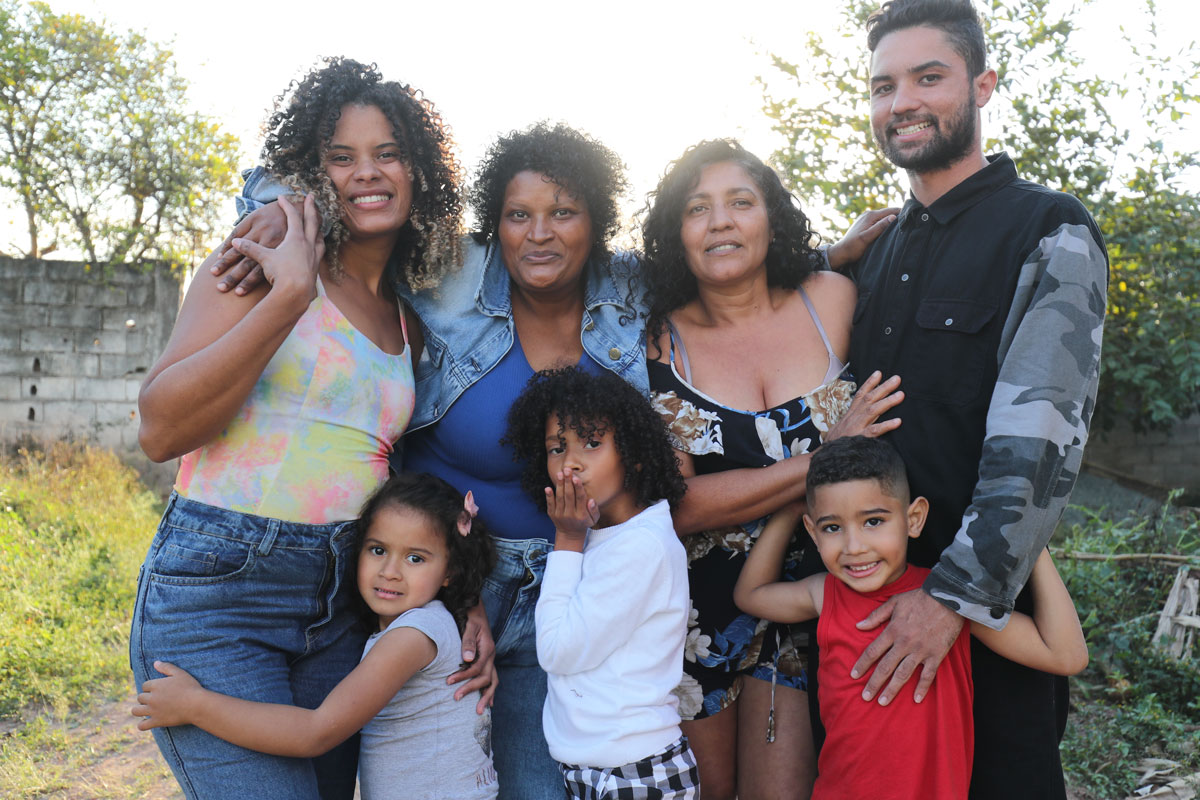
Long-term federal aid programs that Latino families support
Evidence has consistently demonstrated that GBI programs have positive outcomes for low- and middle-income households. A meta-analysis from Stanford University found that GBI programs lead to a measurable decrease in poverty, increased school enrollment and attendance, and improved physical and mental well-being.[15]
In 2019, there were 82 children’s savings account programs across the United States. A study examining programs’ effectiveness 10 years after accounts were established found that participating families had higher savings and higher expectations that their children would attend college. The study also found that families who were enrolled for seven years saved over four times more of their own money on average than families who were not enrolled.[16]
Upward Mobility
The 2023 National Latino Family Report heard a resounding call for more support for working families—but parents are not looking for handouts. Twenty percent of respondents requested more career counseling and coaching, and 25% supported more job skill development tools.
The time and space to pursue higher education is a key determining factor in upward mobility and higher-paying job opportunities. Worryingly, our study found that 10% of respondents were forced to postpone or quit their education or career-related expenses because of inflation and the rising costs of living.

of Latino parents postponed or quit their education because of the rising costs of living

Solutions for Latino upward mobility

Goal-setting tools for education & job skills development 25% support

Career counseling or coaching 20% support

About This Study
Survey Methodology
Acknowledgments
We extend our deepest thanks to the following partners and collaborators on this report:
Report designed by MediaDesk
Parents:
- Melanie Cardenas
- Yolanda Garnica
- Jennifer Torres
Partners:
Thank you to the J.B. and M.K. Pritzker Family Foundation for funding the Latino Infant Initiative
About This Study
Survey Methodology
Acknowledgments
We extend our deepest thanks to the following partners and collaborators on this report:
Report designed by MediaDesk
Parents:
- Melanie Cardenas
- Yolanda Garnica
- Jennifer Torres
Partners:
Thank you to the J.B. and M.K. Pritzker Family Foundation for funding the Latino Infant Initiative



